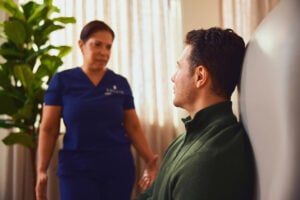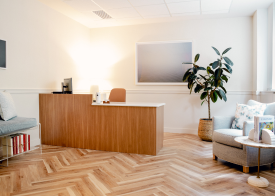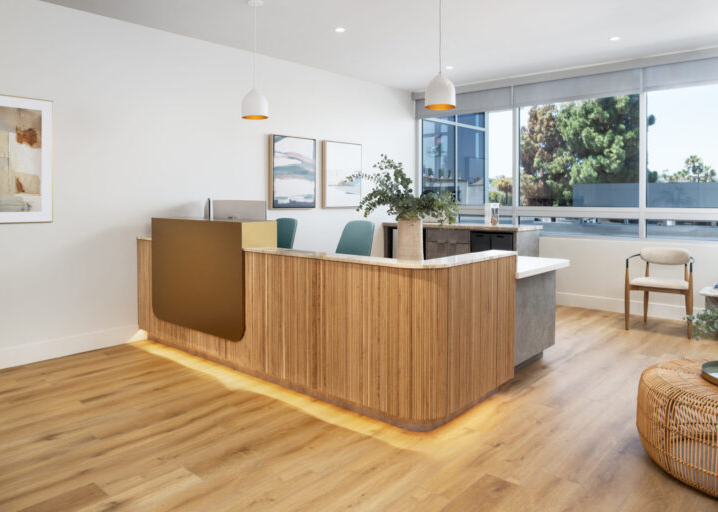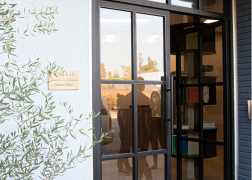How (and when) were you first diagnosed with Juvenile Myoclonic Epilepsy?
I was diagnosed with JME in my mid-teens. I started having symptoms at 13 and it took up to two years to realize this might be epilepsy. I was repeatedly told by my general practitioner that there was nothing wrong with me until I was eventually referred to a neurologist where I received my diagnosis.
You’ve said that having epilepsy as a DJ—”battling late nights, early flights, and strobe lights”—will hopefully inspire others on their journey. Can you talk a little more about this?
When you are diagnosed with a condition like epilepsy, you are often filled with fear and anxiety and encouraged to make lifestyle changes. Which can be really tough, especially for teens. While you have to be cautious, I think it’s important not to let your condition define you. I chose to pursue a professional path that wasn’t the most fitting for my health. I just think you’ll be happier and healthier if you go after what you want.
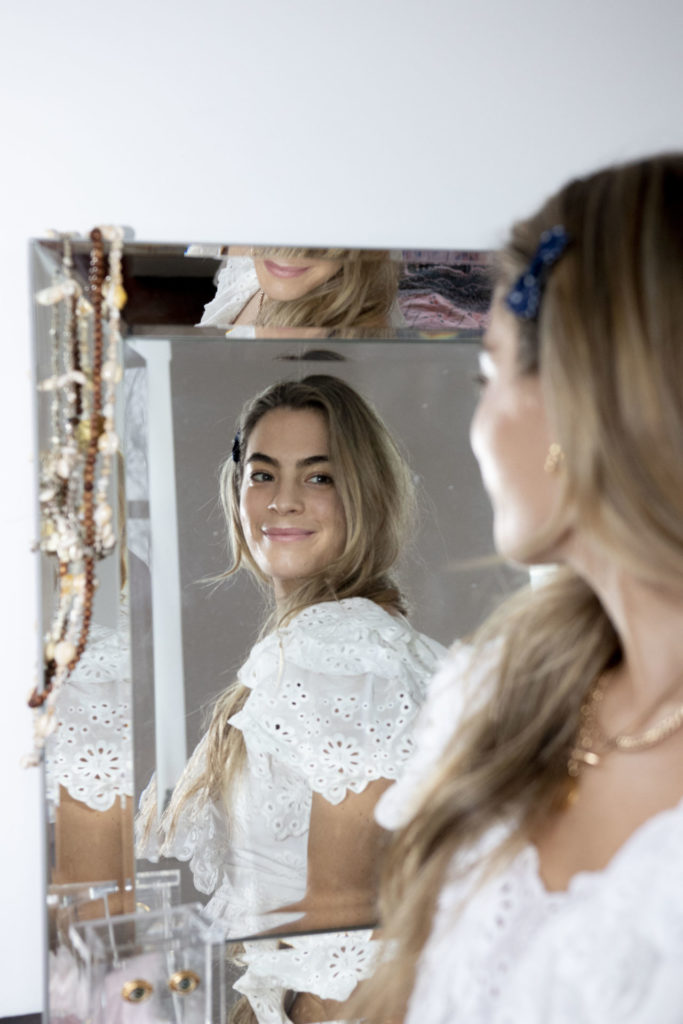
What’s the worst medical horror story you can share with us?
The worst incidents for me were my second and third seizures. The second I had in the shower, and I fell and my dad woke up to me bashing my head against the bath. He had to break down the door because I of course being a teenager had locked the door! I woke up not knowing what had happened. You spend a long time recovering, emotionally and cognitively. The third seizure, I was at the top of the stairs and fell down the stairs during the seizure, and that was probably even more traumatic for those who saw it.
You’ve also had to deal with endometriosis. How has that affected your pregnancy journey?
I began my journey trying to conceive with a great deal of fear due to having endometriosis and hearing horror stories around infertility. Unfortunately, I ended up experiencing a very traumatic ectopic pregnancy, I was rushed to hospital, and had to have my right fallopian tube along with the baby removed. I then lost a further baby due to a missed miscarriage (also known as a missed abortion or a silent miscarriage, which occurs when a fetus is no longer alive but the body does not recognize the pregnancy loss or expel the pregnancy tissue. As a result, the placenta may continue to release hormones, so you may continue to experience signs of pregnancy). There is still such limited research around how endo impacts women’s health and this means there are many unanswered questions you have to deal with when trying to conceive.
What has surprised you the most about your experience with chronic illness?
The lack of understanding from others, particularly physicians. It’s hard for people to understand an illness when they can’t see your symptoms. You appear normal but feel unwell. So only when you’re convulsing on the floor or going in for endo surgery do they understand the severity of what you’re coping with. In regards to epilepsy, you live in fear of your next seizure and there’s a great deal of pressure and anxiety you’re battling with as you continuously worry about your next attack. In many respects I have felt let down by allopathic medicine, in relation to both my epilepsy and endometriosis. I waited over 10 years to receive an endometriosis diagnosis after years of debilitating pain; I believe this is a result of the gender pain gap that stems from deep-rooted medical misogyny and in turn there is a tremendous lack of research when it comes to women’s health.
A few years ago you decided to replace your pharmaceutical anti-seizure medication with medical cannabis. What sort of effects has that had on your health? How are you feeling these days relative to what you’ve been through?
I have been very fortunate that medical cannabis has been a more efficacious form of treatment for my seizures than any of the anticonvulsants I was previously taking. I have been seizure free for over five years because of it, which has been life changing! My mental health has also dramatically improved as I do not experience the side effects I once did due to the drugs I was on, and cannabinoids have also aided my sleep and improved my anxiety. It’s important to remember that cannabis is still a medicine and this means it does not provide the same effect for all those suffering with seizures.
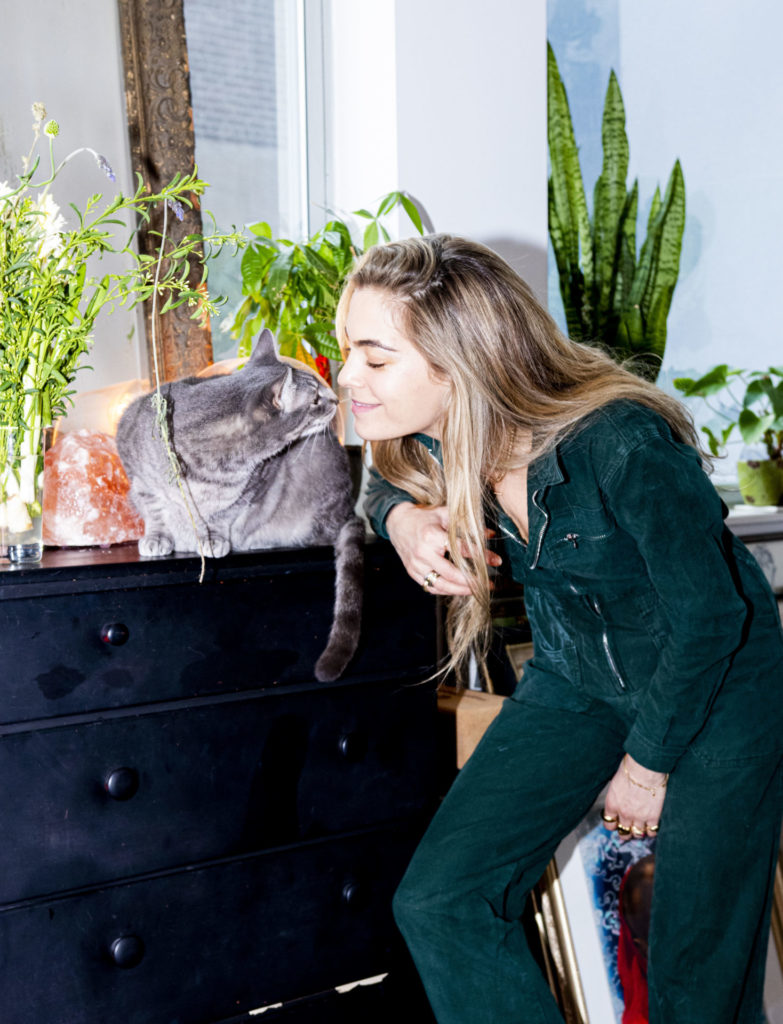
What inspired you to create Looni?
Years of debilitating pain and suffering with my cycles. Limited treatment options like the contraceptive pill and surgery, which only felt like temporary solutions to my menstrual issues. A tremendous lack of education when it came to my female physiology. I believe women are starting from a body knowledge deficit due to systemic medical misogyny and exclusion from clinical research, which is why at Looni our mission is to elevate the menstrual cycle and democratize body literacy.
Are there times when you yourself have felt stigmatized?
The amount of times my sister has had a seizure in a restaurant and her face just plants into her food, and I don’t think anyone has ever asked if we need help. Epilepsy is a heavily stigmatized condition and people fear the unknown—it stems from a lack of education, and you only need to look at the history of how epileptics were treated to get a sense of this. People historically believed that epilepsy was contagious, an issue that is still prevalent in Nigeria, and that people with epilepsy suffered from demonic possession. In the United Kingdom, a law prohibiting people with epilepsy from marrying was only repealed in 1970 and in some parts of the world, epilepsy is still commonly viewed as a reason for annulling marriages or simply prohibiting them. This stigma is sadly still very prevalent in the workplace: people don’t want to admit they have epilepsy because they don’t want to lose their job or be treated differently.
How has Sollis been able to support you?
Sollis has been a tremendous support for both my partner and me, especially during the height of Covid when having a number to call 24/7 was priceless. Today, as a person living with epilepsy, Sollis continues to offer peace of mind knowing I have somewhere to turn should a medical issue suddenly arise.
How does it feel to be pregnant after dealing with so many health issues?
I am now 5.5 months pregnant and up until recently I was still waiting for something to go wrong and to be delivered bad news at my doctors appointments. I think this has been a symptom of losing multiple babies and having such a tough journey, but I’m now starting to feel more grounded in myself and honestly just really grateful for where I’m at as I know I’m one of the lucky ones. It’s still really important to me to hold space for the community who is struggling with fertility issues, as I know firsthand how isolating and painful it can be. I believe we heal in communities, which is why my company Looni has started an online community in Geneva to support those who are on fertility journeys as well as broader menstrual health journeys.
What have you learned about yourself—and the human spirit in general?
I’ve learnt that we’re more resilient than we think we are in my case, my greatest challenges have in many ways become my strengths. Adversity builds grit, resilience and determination. I’ve learned that individually we’re more powerful than we often think we are when it comes to activism. My life transformed when I stepped into vulnerability. Being authentic, sharing things that are true—that resonates with people. I know speaking out has had an impact on people who live in silence with this condition. Elton John is a prime example of someone who could do so much for the epileptic community and no one knows he has epilepsy! Prince had epilepsy, and only mentioned it once in his whole career.
Any good words to live by?
“Don’t underestimate the power of vulnerability and authenticity.” So often people can be afraid to share their truth, especially around hardship and trauma, but if we can touch the lives of one other person by making them feel seen or less alone, then that is enough.

